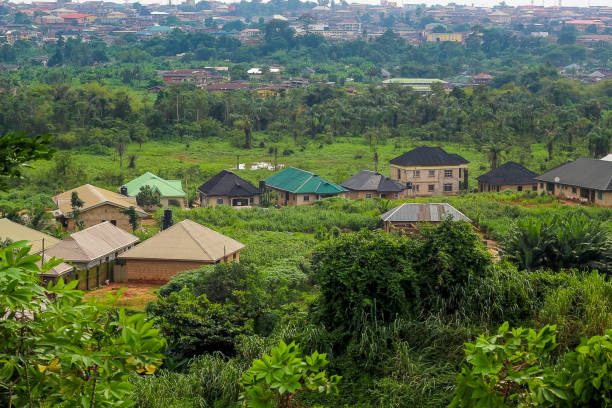RURAL HOUSING AND DEVELOPMENT
Posted on 21/08/2023 11:04 AM | by NaijaHouses

By Blessing Clement
In the vast landscape of Nigeria, where urbanization often takes the spotlight, rural housing and development play an equally vital role in shaping the nation's progress. Providing adequate housing for rural communities comes with its own set of challenges and opportunities, influenced by factors ranging from infrastructure to cultural considerations. This article delves into the complexities of rural housing, highlighting the need for holistic solutions that address the unique circumstances of these communities.
Challenges of Rural Housing:
- Infrastructure Deficit: One of the primary challenges in rural housing development is the lack of proper infrastructure. Many rural areas lack essential amenities such as reliable electricity, clean water supply, and functional road networks. These infrastructural gaps hinder the creation of habitable and sustainable housing environments.
- Limited Access to Resources: Rural communities often face difficulties in accessing construction materials, skilled labor, and modern building technologies. This scarcity can lead to substandard housing that lacks durability and comfort.
- Financial Constraints: Limited economic opportunities in rural areas can impact the financial capacity of residents to invest in quality housing. Many rural households struggle to afford the upfront costs of construction or improvements.
- Cultural Considerations: Cultural norms and practices can influence the design and layout of housing in rural communities. Any housing development must respect and integrate these cultural values to ensure acceptance and sustainability.
- Land Ownership and Tenure: Land ownership and tenure issues can complicate housing development in rural areas. Unclear land rights, disputes, and lack of proper documentation can deter investment in housing.
Opportunities for Rural Housing Development:
- Affordable Housing Models: Rural areas offer opportunities for innovative and cost-effective housing solutions. These can include modular housing, alternative construction materials, and community-driven building initiatives that leverage local resources.
- Sustainable Practices: Rural communities often have a closer connection to the environment. Implementing sustainable building practices, such as energy-efficient designs and waste reduction, aligns with their ecological awareness.
- Community Participation: In rural settings, community engagement is more feasible. Involving local residents in housing planning and construction empowers them and ensures that housing solutions are tailored to their needs.
- Adaptive Design: Housing in rural areas can be designed to accommodate changing needs and expansion over time. Flexible layouts and modular designs can facilitate easy modifications.
- Government and NGO Initiatives: Various government programs and non-governmental organizations are focusing on rural development. These initiatives provide funding, technical assistance, and capacity building for rural housing projects.
Read also:
How The Availability Of Water Affects The Choice Of Real Estate Property
The Rise Of Co-Living Spaces: Pros And Cons For Modern Urban Dwellers
HOW TO STAGE YOUR HOME FOR A QUICK AND PROFITABLE SALE
Holistic Solutions for Rural Housing:
To address the challenges and harness the opportunities of rural housing development, a multi-faceted approach is essential. This includes:
- Infrastructure Development: Investing in rural infrastructure creates a foundation for housing growth. Improved roads, water supply, and electricity access attract investment and improve living conditions.
- Access to Finance: Initiatives that offer microfinance options, subsidies, and low-interest loans can empower rural residents to build or improve their homes.
- Capacity Building: Providing training and skills development to local artisans and construction workers enhances the quality of rural housing projects.
- Cultural Integration: Engaging with community leaders and residents to understand cultural preferences and traditions ensures that housing designs align with local values.
- Partnerships: Collaborations between government bodies, NGOs, private sector entities, and local communities can pool resources and expertise for effective rural housing development.
Rural housing and development present both challenges and opportunities that require tailored and inclusive solutions. By addressing infrastructure deficits, financial constraints, and cultural considerations, while leveraging innovative approaches and community participation, Nigeria can create sustainable and thriving rural housing communities that contribute to the overall development of the nation.
